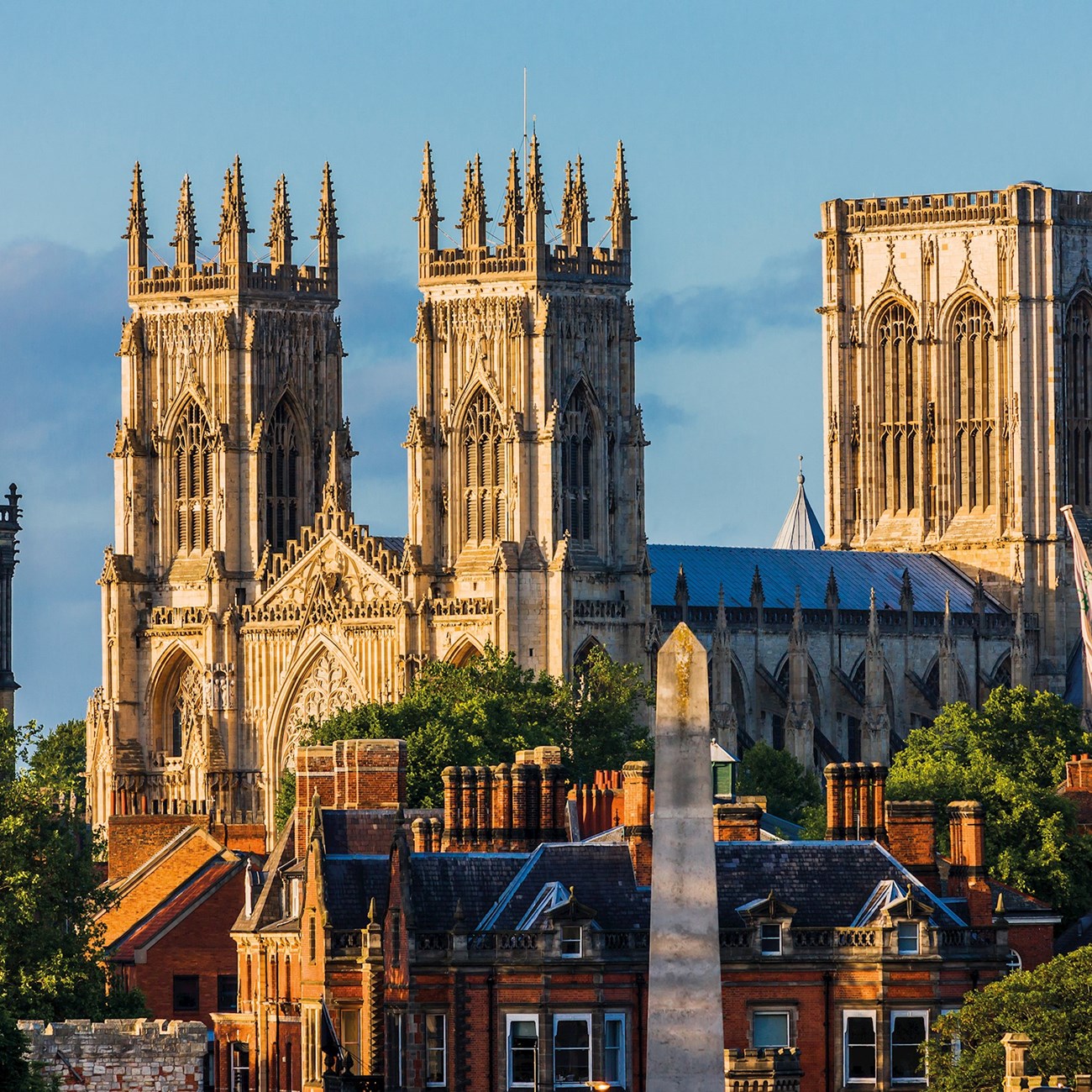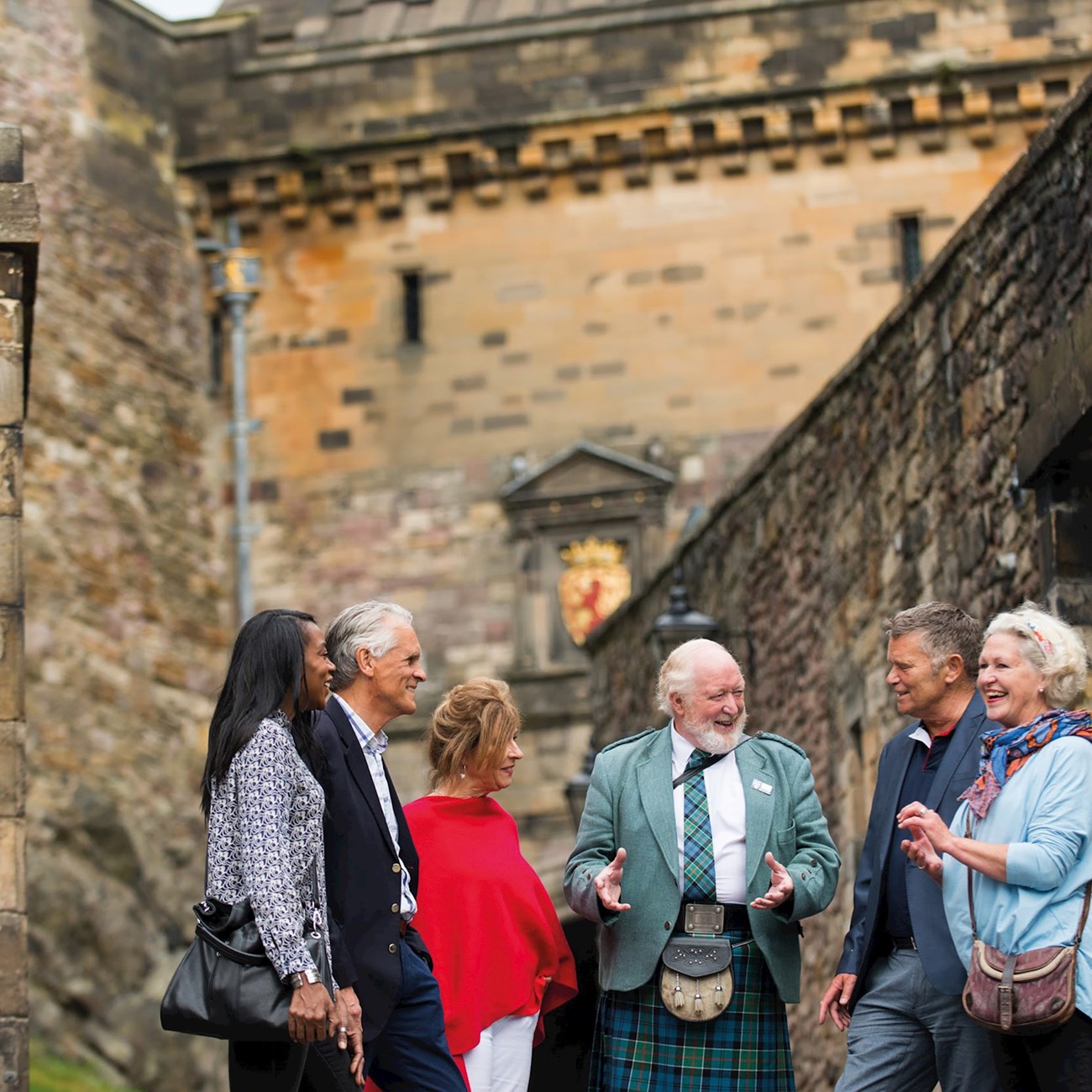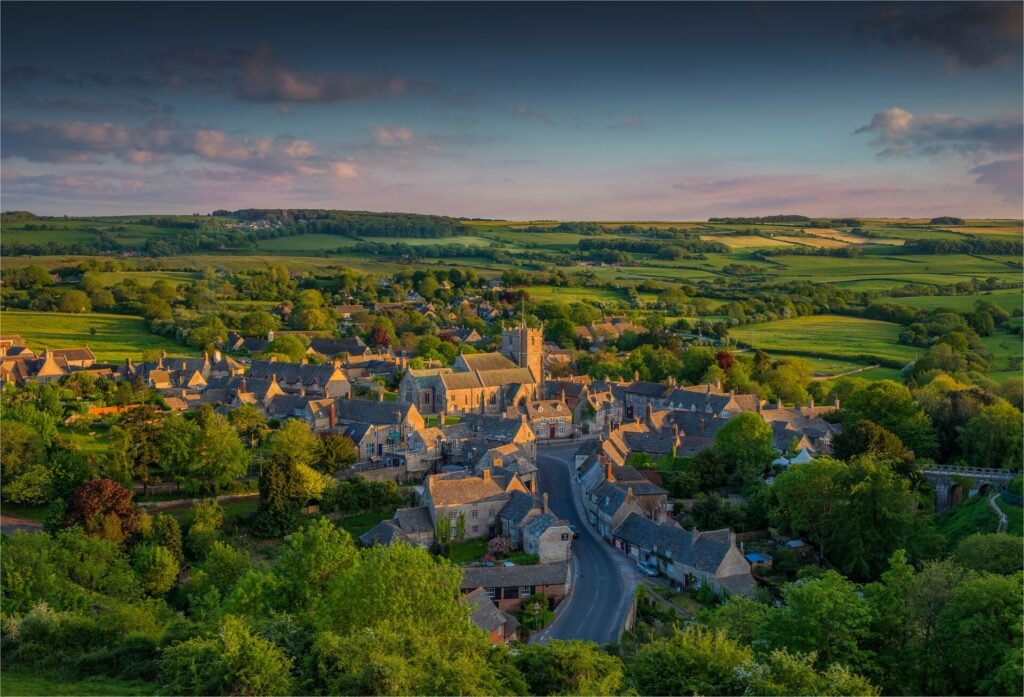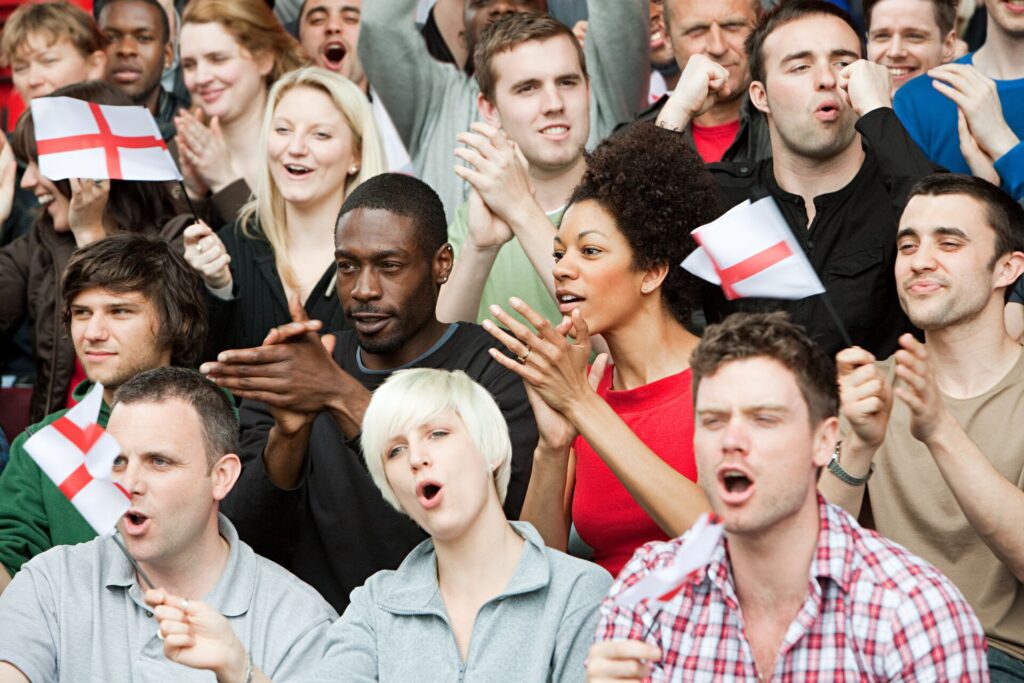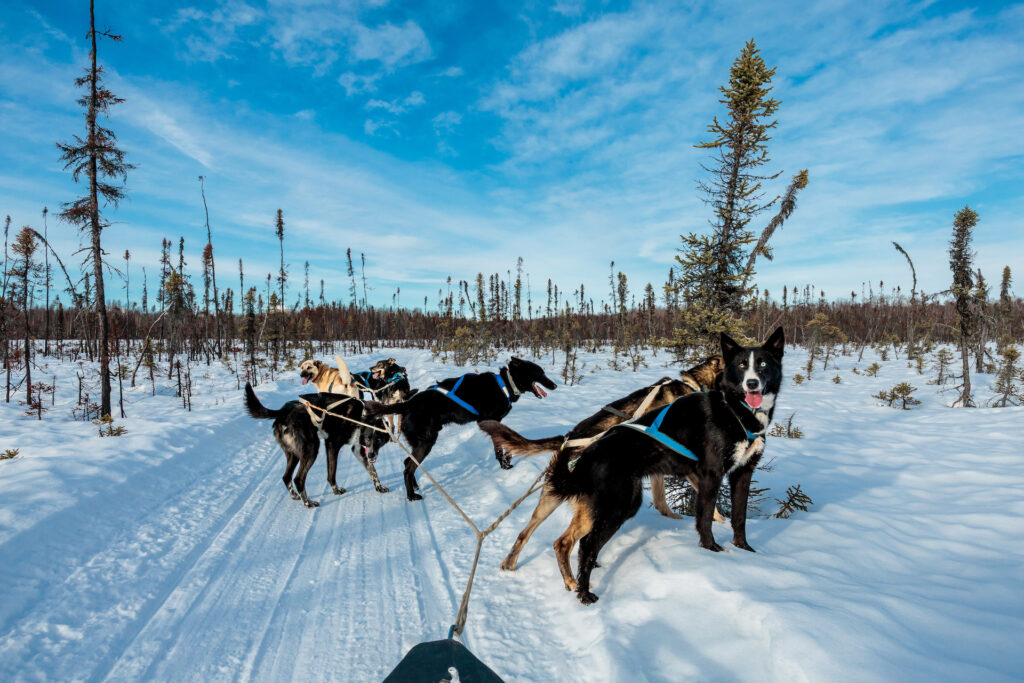If you’re planning a trip to the UK, learning some key British phrases will not only help you understand the locals but also give you a taste of the British way of life. British slang is rich, playful, and full of history, and you’ll hear it everywhere: from a London pub all the way up to the north of England. Here are some quintessentially British phrases you should know before you go.
“Cup of tea”
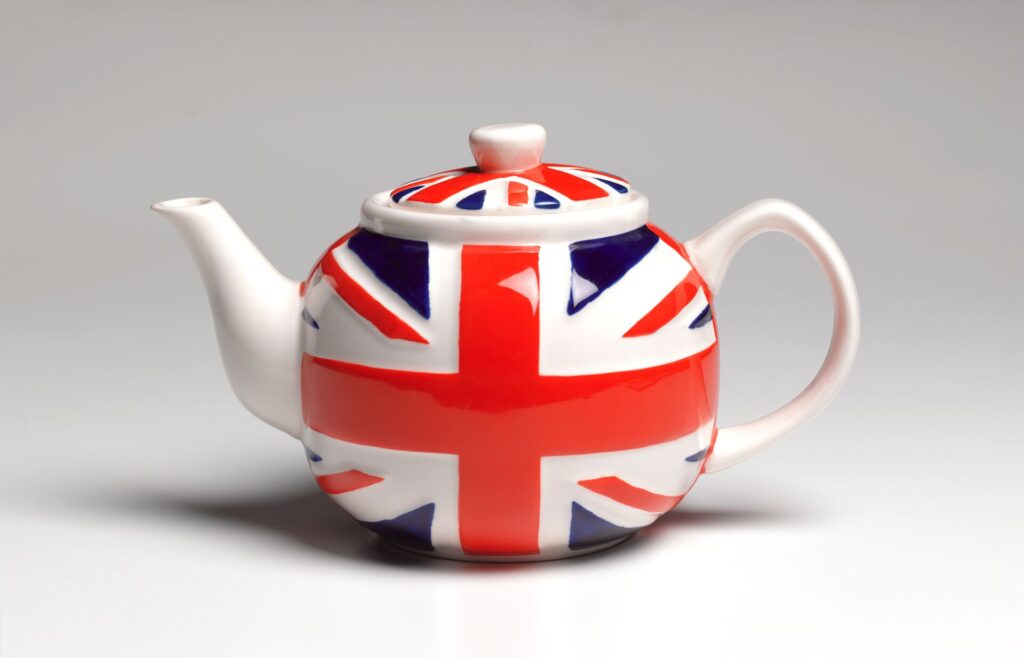
Arguably the most classic British phrase, “cup of tea” is not just about drinking tea—it can also mean something that you enjoy. For example, if something “isn’t your cup of tea,” it means it’s not to your liking.
“Absolutely knackered”
If a British person tells you they’re “absolutely knackered,” they’re telling you they’re extremely tired. This is a common British slang term used after a long day at work or an exhausting activity.
“Full of beans”
This phrase comes from horse racing, back to the days when horses were fed beans to give them energy and stamina. The original phrase was ‘full of prunes’, but changed to beans sometime in the 19th century. If a horse was full of beans, it would be lively and energetic. The expression was later applied to people, meaning someone who’s bursting with energy or excitement.
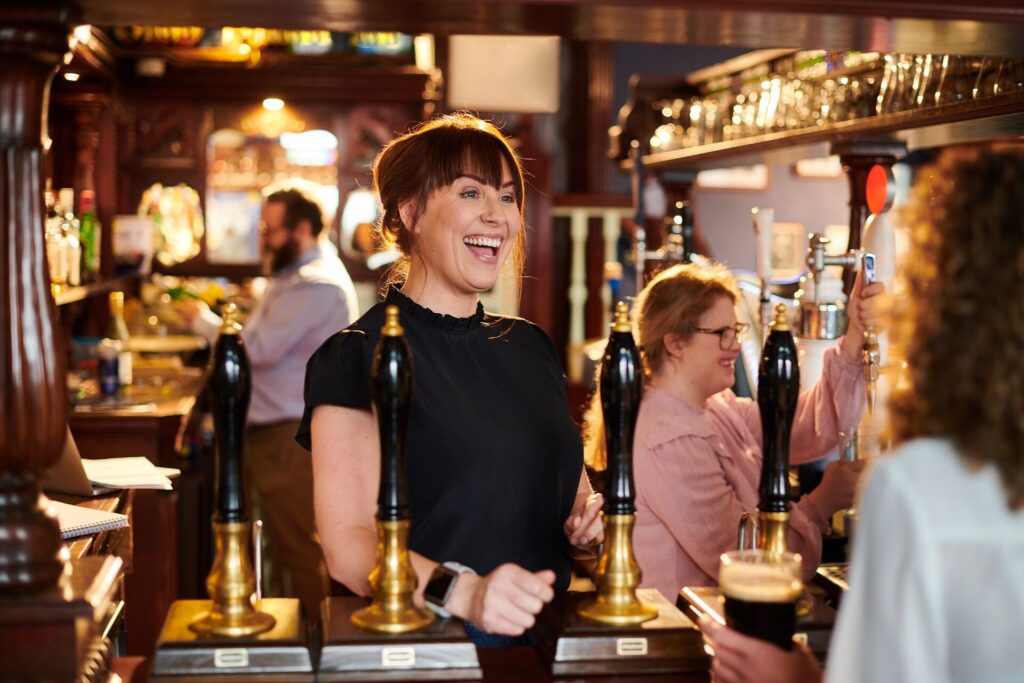
“Pear shaped”
This expression might sound odd, but when something goes “pear shaped,” it means it has gone wrong. There are a lot of theories as to where this phrase comes from, one of which goes back to the Royal Air Force in 40s England. When pilots were training to fly for WW2, things could go wrong during maneuvers, especially the difficult loop de loop, leading to a plane’s flight path becoming pear-shaped instead of perfectly circular. Cut to jokes from colleagues that his attempt went ‘pear-shaped’. Over time, this became a general way to say that a situation has gone wrong.
“Taking the Mickey”
This British slang term means to mock or tease someone in a playful way. If you ask someone ‘Are you taking the mickey?’, you’re asking them if they’re fooling around. You might hear it in a British TV show or even in casual conversation—it’s all in good fun! Watching a classic British TV show will give you a good feel for how this plays out in everyday conversation. This is thought to come from cockney rhyming slang.
“Blimey!”
“Blimey” is a shortened form of ‘Gor blimey’, a term which dates back to the 19th century. It means ‘God blind me’, and is used as an expression of surprise – a bit like oh my god! At the time, blasphemy was a serious matter and it wasn’t okay to take the Lord’s name in vain, so saying a phrase which sounds a bit like it was a good workaround. Over time it became less religious and more casual. Now, it’s simply a fun British (and Australian) way to express shock—kind of like saying “Wow!”
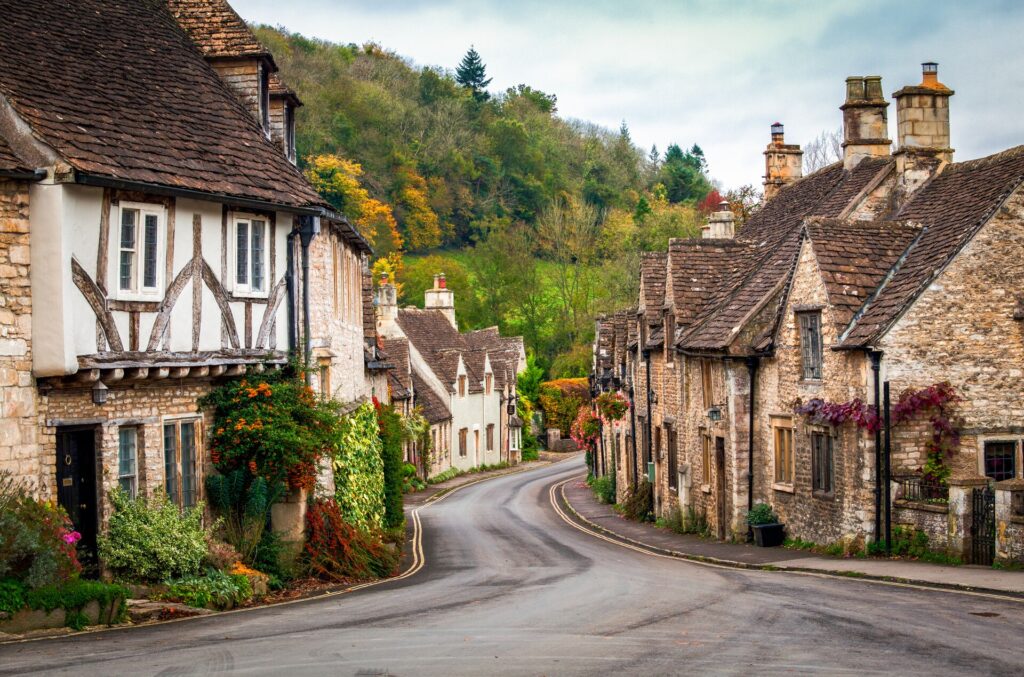
“Cheeky”
“Cheeky” is a British word used to describe someone who is playfully rude, or a thing / activity which is little bold in a fun way. For example, you might go for a “cheeky pint” after work, meaning an unplanned or spontaneous drink.
“Bob’s your uncle”
This quirky British is used when something is easily done or the result is obvious. It’s often said at the end of instructions to mean, “and that’s it!”—like magic.
It dates back to the late 19th century and is believed to come from a piece of political history. British Prime Minister Robert “Bob” Cecil appointed his nephew, Robert Balfour, to an important government position, sparking the idea that with a powerful uncle (like Bob), success was a given. Now it’s used to mean something is easily achieved, like saying “and there you have it!” Here’s an example: ‘Just go down the street, and bob’s your uncle, you’ll see the restaurant on your left.’
“Chuffed”
“Chuffed” is a term that’s been in use since the early 20th century, originally a Northern England dialect word meaning fat, bulging or “puffed up”. But not in the literal sense, instead swollen or puffed up with pride when you’re pleased with yourself. Over time, it became military slang and evolved into a word meaning very pleased or happy with something.
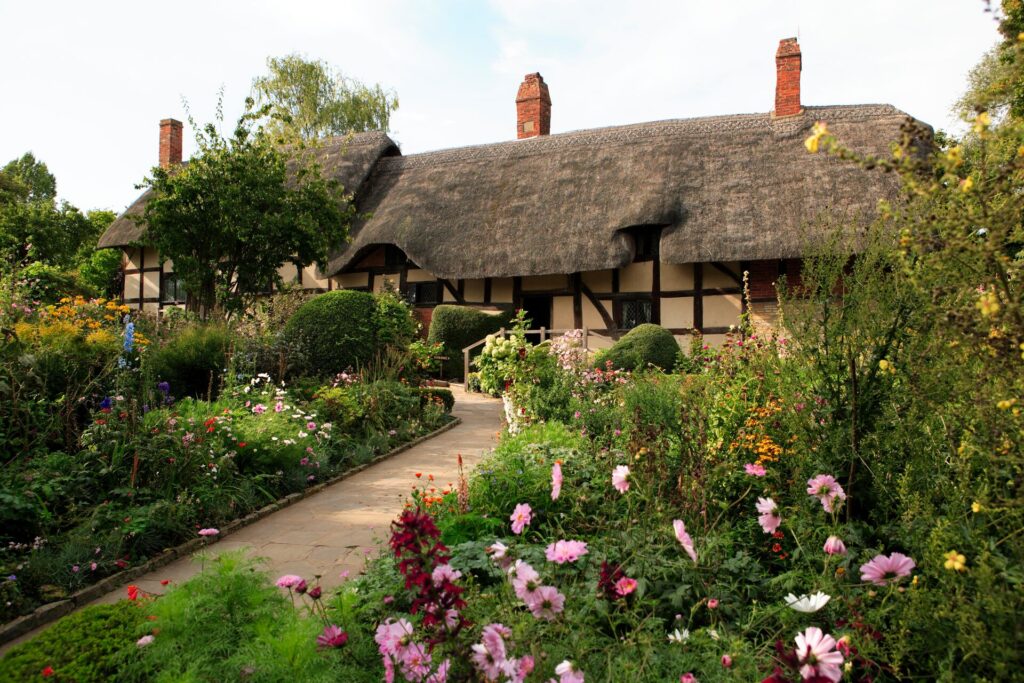
“Crikey”
“Crikey” is an old-fashioned British exclamation of surprise or amazement. It’s a euphemism for “Christ,” and it became popular in the late 19th century as a milder way of expressing shock without being blasphemous. It’s a bit dated, often heard in older British TV shows or period pieces, though it’s still used today in a humorous or exaggerated way.
“Gutted”
The word “gutted” comes from the literal process of removing the guts (internal organs) from an animal, which has been done by humans for centuries. The metaphorical use of the word—meaning to feel deeply disappointed or devastated—emerged in the UK in the late 20th century. This slang term is now commonly used across Britain to describe feelings of extreme disappointment, especially in casual conversations, like after losing a big game or receiving bad news.
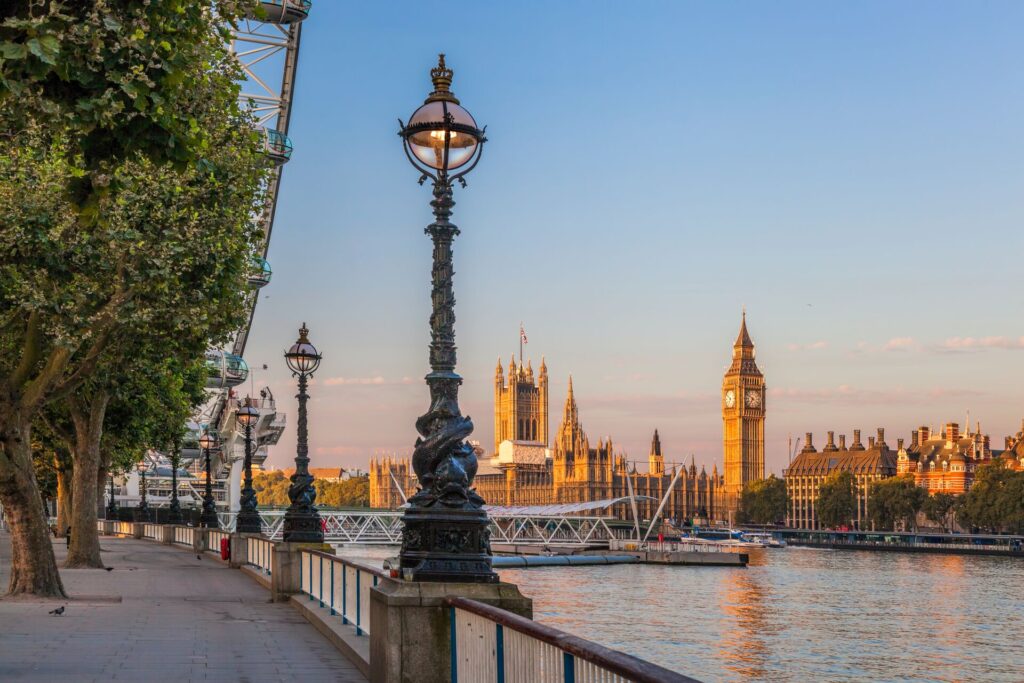
“Quid”
“Quid” is slang for a British pound, much like “buck” is used for the US dollar. The term has been in use since the late 17th century, originally used by thieves and beggars in the 17th century as slang for money. One theory is that it comes from the Latin phrase “quid pro quo,” which means “something for something.” Others believe it originated from Irish Gaelic.
“Fancy”
If you “fancy” something, it means you like or desire it. For example, “I fancy a cup of tea” means you’d like to have one.
Rhyming Slang
Rhyming slang originated in the working-class neighborhoods of East London, specifically among cockneys, in the 19th century. It was initially used as a form of code, so outsiders wouldn’t understand what was being said. The cockneys would replace words and phrases with a rhyme, often taking out the key rhyming word to make it even less obvious. For example:
Don’t go telling porkies, that computer hasn’t been working in donkeys. Get your bacons up the apple and pears and have a butcher’s, if you don’t Adam and Eve it…
So, to decipher the sentence above…’Porkie pies’, or just porkies, was used for ‘lies’. ‘Years’ became ‘Donkeys’ (as in, donkeys ears). ‘Bacon and eggs’ became ‘legs’, and ‘apples and pears’ were stairs. ‘Adam and Eve’ substituted ‘believe’. Still following?
So, knowing that, the above sentence turns into:
Don’t go telling lies, that computer hasn’t been working in years. Get your legs up the stairs and have a butcher’s, if you don’t believe it…
What do you think ‘butcher’s’ could be? Here’s a clue: It derives from butcher’s hook, which rhymes with…? That’s right, ‘look’,
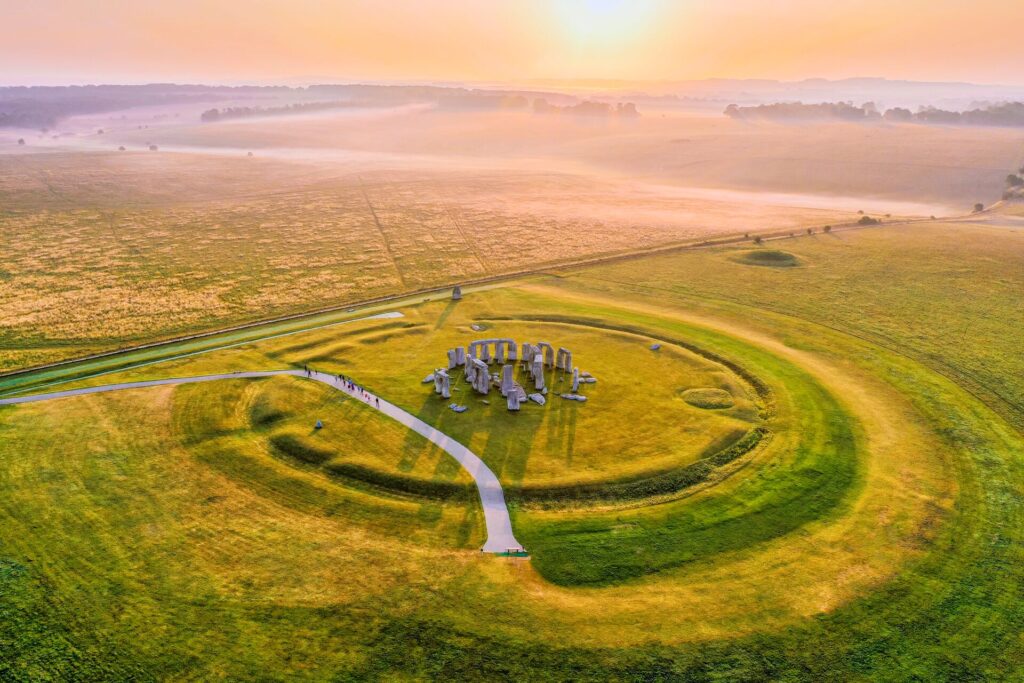
“Chinwag”
The term “chinwag” is a delightful British phrase which means to have a good chat or gossip, often in an informal and friendly way. The word paints a picture of two people wagging their chins as they talk animatedly. Maybe it’ll be at the pub, or you’d invite your friends round your house for a cup of tea and a chinwag.
“Brolly”
A “brolly” is simply a British word for an umbrella. Given the UK’s famously unpredictable weather, you might hear this word quite often!
“Faff”
“Snog”
A ‘cheeky’ (remember that one?) British slang term meaning to kiss someone passionately. Its exact origins are unclear, but it gained popularity around the 1940s and 1950s, becoming a part of youth culture as British teens embraced the term during the post-war years. “Snog” is often used informally and with a sense of fun, and it remains a popular slang word today. You might hear it in casual conversation, TV shows, or movies, especially in reference to teenage romance or cheeky flirtation.
“Bits and bobs”
This phrase refers to small, miscellaneous items or tasks. You might say, “I’ve got a few bits and bobs to take care of,” meaning you have a few things to do. It likely comes from old British coinage, where “bits” referred to small pieces of money, and “bobs” was a slang term for a shilling. Over time, the phrase evolved to mean odds and ends, or a collection of various small things.
“Spot-on”
When something is perfect or exactly right, British people will say it’s “spot-on.” It’s one of the most common British phrases you’ll hear. The expression likely originated in the military in the early 20th century, where hitting a target “on the spot” was a matter of precision and skill. Over time, it transitioned into common usage, and today, people use “spot on” to confirm that something is correct.
The English language is full of delightful expressions, from British slang words to quirky rhyming slang. Even though there are clear differences between British English and American English, these phrases will hopefully make you feel more in tune with British culture and help you fit right in with the locals. Bob’s your uncle.
